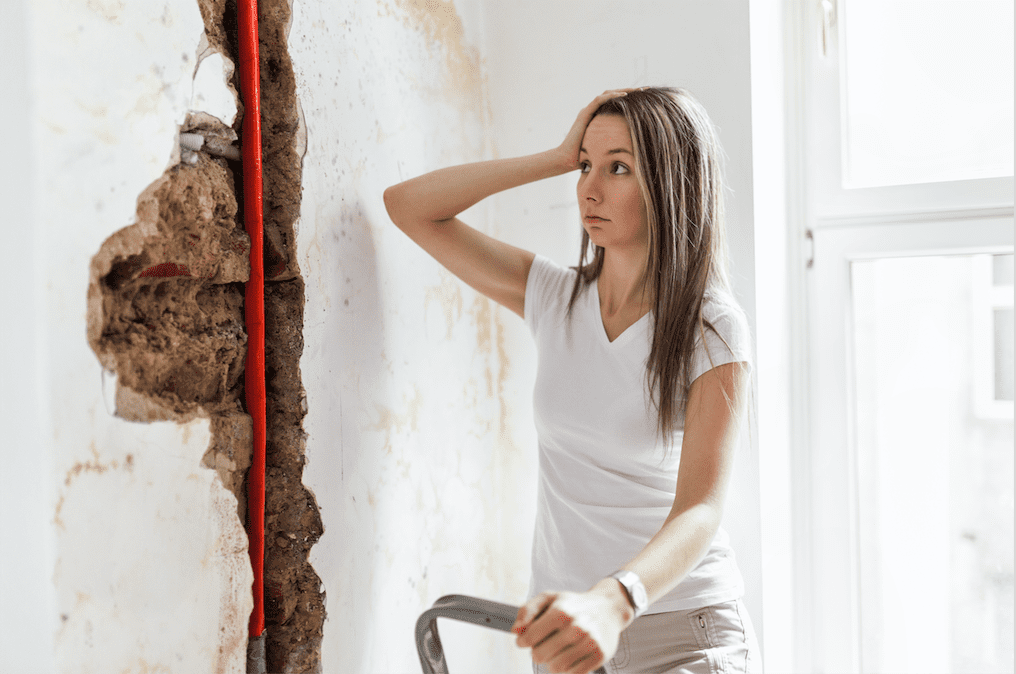Six Reasons Why You May Have a Leaking Pipe

A leaking pipe in your house can be a catastrophe, leaving you with not only a pipe to repair, but also potentially water damage that needs to be repaired. As you call your neighborhood plumber to fix your leaking pipes, you might be wondering, why am I in this situation? What could have caused this leak? Here are six major reasons why your pipes may leak.
Corrosion
Many pipes are metal, and with water running through them every day, it’s only a matter of time before a leak develops. Why? Metal pipes will rust over time, and ultimately, this corrosion will eat through the pipe causing leaks.
Cracks
A cracked pipe is certainly not good news. Most household plumbing systems have pressure regulators, meaning the water in them is kept to a certain pressure point. A crack is a weakness in the pipe that ultimately will lead to failure. It might start as a drip or a small leak as the pressure slowly forces water through, but ultimately the pipe walls will give way, and you’ll find yourself wading in regret that you didn’t do something about it sooner.
Broken Seals
Since your plumbing isn’t one continuous piece but has many sections and appliances it provides water to, it also has many seals to keep those connections from leaking. Over time, however, seals may dry out, wear out, and ultimately fail. Any time you have any plumbing work done on your home, the seals should be checked and updated as needed.
Blockages
Sometimes the source of your leak is a blocked pipe. You’ll notice this most if your drainage pipes are blocked. Tree roots tend to get into sewage pipes that run waste water out of your home, starting a blockage by allowing toilet paper, food and other debris in your waste water to get caught up. Ultimately, the blockage will build up, until waste water can no longer get through when you take a shower, flush the toilet, or run the dishwasher. And unfortunately, physics dictates that the water has to go somewhere, so if it can’t go through the pipe, the pressure will build up until it finds a weakness where it can escape.
Damaged Joints
The joints between pipes are the weak point of any plumbing system, so any damage to these joints could cause leaks to develop. Whether it’s caused by pipes expanding and contracting, shoddy workmanship, or just heating and cooling, any damage to a joint compromises its ability to hold back the pressure in the system.
Excessive Water Pressure
If your water pressure regulator is producing too much pressure, you could have a bigger problem on your hands than you realize. Sure, a lot of water pressure may be nice when you want a shower or need to hose something off, but don’t forget that the water is sitting in the pipes under that kind of pressure the rest of the time as well. Your plumbing is designed to handle a certain amount of water pressure, but if there’s too much pressure, any weak links in the system will be put under stress until, ultimately, they fail to keep the water in any longer.
How to Take Care of Leaks Before They Start
When it comes to leaking pipes, prevention is always your best approach. This means having your plumbing looked at regularly for corrosion, cracks, signs of deteriorated seals or damaged joints, blockages or slow drains, banging, and even too much water pressure. For more information on how an occasional checkup and preventative maintenance can avoid expensive leaks, call your neighborhood plumber today. Shane Elmore Plumbing will have one of their reputable technicians get your water flowing smoothly again.




